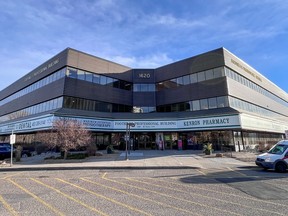
Nunavut’s Health department has opened a community-wide mobile testing clinic in Naujaat, in the hopes of testing as many people as possible for tuberculosis.
It’s been almost a year since a TB outbreak was first declared in the community of 1,200 people on May 16, 2023.
Kevin Tegumiar, Naujaat’s mayor, said the hamlet has been asking for such a clinic for several months.
“Without accurate numbers, we’re not really sure where we are. This clinic will help clear things up,” Tegumiar said.
Tegumiar said three Naujaat residents have died since the outbreak began in the community. Nunavut’s Health department confirmed those numbers in a recent interview with CBC.
Since January 2023, 21 people in Naujaat have been diagnosed with active TB.
Another 118 others have been diagnosed with latent TB, according to the department, which is almost double the number reported in November last year.
Hundreds of tests
Health officials have set a goal to test 1,000 people in Naujaat for TB by the end of the clinic, on May 30.
“We hope that every one of them are coming and get screened during the time that we are here,” said Ekua Agyemang, Nunavut’s deputy chief public health officer. “When TB is identified early, the disease is very easy to treat in the community.”
The Health department said they will deploy a team of health-care workers, including a doctor, four nurses, an epidemiologist, a radiology technician and laboratory technician.
Canada’s chief public health officer, Dr. Theresa Tam, will also visit Naujaat this week as part of a tour alongside Nunavut Tunngavik Inc. officials and the territory’s health minister. Tam will also visit Pond Inlet and Iqaluit.
“Though TB will be
















 Despite the optimistic outlook, individuals are still cautious about how they use AI when it comes to their health. While 72% of Americans believe the health advice they receive from a computer chatbot is accurate, 9 in 10 (89%) said they would still seek doctor’s advice before acting on its recommendations.
Despite the optimistic outlook, individuals are still cautious about how they use AI when it comes to their health. While 72% of Americans believe the health advice they receive from a computer chatbot is accurate, 9 in 10 (89%) said they would still seek doctor’s advice before acting on its recommendations.





